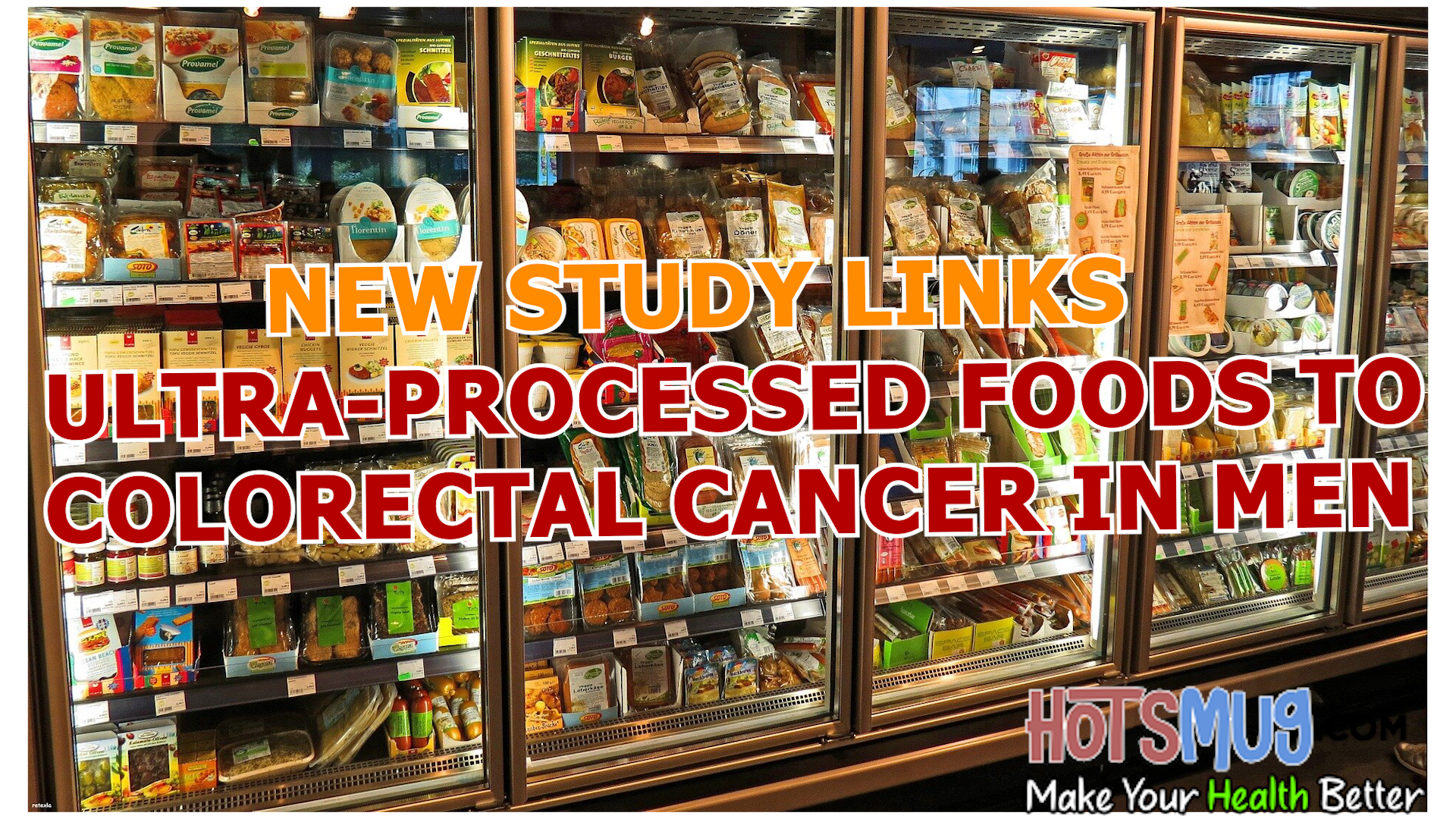The consumption of ultra-processed foods can increase the risk of colorectal cancer, a new study shows.
The study, published this week in the medical journal The BMJ, analyzed the diets of over 46,000 men and 150,00 women to trace the correlation between what they ate and cases of colorectal cancer. After 24-28 years of participant follow-ups, researchers found a link between ultra-processed foods and colorectal cancer in men, but not women.
“Men who consumed ultra-processed foods in the highest fifth had a 29% higher risk of developing colorectal cancer than did those in the lowest fifth,” the study detailed. For women, however, no “significant association” was calculated.
“Reasons for such a sex difference are still unknown, but may involve the different roles that obesity, sex hormones, and metabolic hormones play in men versus women,” said co-senior author and cancer epidemiologist Fang Fang Zhang to CNN Health.
What are processed foods?
Most foods are processed to some degree, but ultra-processed foods are considered the most harmful to your health.
In the new study, these foods were listed as carbonated drinks, sausages, biscuits, candies, instant soups/noodles, sweet/savory packaged snacks, and sugary milk-based and fruit-based drinks.
The researchers noted that these foods often contain high levels of added sugar, fat, and/or salt as well as lacking in vitamins and fiber.
The researchers did not specifically identify the exact mechanism linking ultra-processed foods with the increase in colorectal cancer risk, but the scientists have a few hypotheses.
“Ultra-processed foods are usually high in added sugar, oils/fats, and refined starch, altering gut microbiota composition unfavorably and contributing to increased risk of weight gain and obesity Weight gain and obesity are established risk factors for colorectal cancer,” said Lu Wang, Ph.D., a postdoctoral fellow at the Friedman School of Nutrition Science and Policy at Tufts University and lead author of the study.
“Ultra-processed foods are low in nutrients and bioactive compounds that are beneficial for the prevention of colorectal cancer, such as fiber, calcium, and vitamin D. Ultra-processed foods consist of (most) processed meats, which is an established risk factor for colorectal cancer,” she told Healthline.
Beyond poor nutrition profiles, Wang noted that ultra-processed foods commonly contain food additives such as dietary emulsifiers and artificial sweeteners, some types of which have been suggested to increase the pro-inflammatory potential of the gut microbiome, which may promote colon carcinogenesis.
“We do find that subgroups of ultra-processed foods. including processed meat products like hot dogs, salami, and sausages as well as sugar-sweetened beverages, are particularly correlated with the risk of colorectal cancer,” Wang said.
The study is further evidence of the need for policies that limit ultra-processed foods and instead promote eating unprocessed or minimally-processed foods to improve public health, Wang added.
The Impacts of Ultra-Processed Foods
The analyses revealed differences in the ways that men and women consume ultra-processed foods and the prospective associated cancer risk. Out of the 206,000 participants followed for more than 25 years, the research team documented 1,294 cases of colorectal cancer among men, and 1,922 cases among women.
The team found the strongest association between colorectal cancer and ultra-processed foods among men come from the meat, poultry, or fish-based, ready-to-eat products. “These products include some processed meats like sausages, bacon, ham, and fish cakes. This is consistent with our hypothesis,” Wang said.
The team also found higher consumption of sugar-sweetened beverages, like soda, fruit-based beverages, and sugary milk-based beverages, is associated with an increased risk of colorectal cancer in men.
However, not all ultra-processed foods are equally harmful with regard to colorectal cancer risk. “We found an inverse association between ultra-processed dairy foods like yogurt and colorectal cancer risk among women,” said co-senior author Fang Fang Zhang, a cancer epidemiologist and interim chair of the Division of Nutrition Epidemiology and Data Science at the Friedman School.
Overall, there was not a link between ultra-processed food consumption and colorectal cancer risk among women. It’s possible that the composition of the ultra-processed foods consumed by women could be different than that from men.
“Foods like yogurt can potentially counteract the harmful impacts of other types of ultra-processed foods in women,” Zhang said.
Mingyang Song, co-senior author on the study and assistant professor of clinical epidemiology and nutrition at the Harvard T.H. Chan School of Public Health, added that, “Further research will need to determine whether there is a true sex difference in the associations, or if null findings in women in this study were merely due to chance or some other uncontrolled confounding factors in women that mitigated the association.”
Although ultra-processed foods are often associated with poor diet quality, there could be factors beyond the poor diet quality of ultra-processed foods that impact the risk of developing colorectal cancer.
The potential role of food additives in altering gut microbiota, promoting inflammation, and contaminants formed during food processing or migrated from food packaging may all promote cancer development, Zhang noted.
Healthy food programs
Wang said she would like to see national legislation of some kind that would mandate more healthy, affordable food.
Wang said it is important to make healthy foods available and affordable for everyone to encourage people to replace ultra-processed food with healthier fresh produce.
“We’ve seen programs like ‘produce prescription’ taking place to make healthy foods available and affordable for vulnerable groups,” she said.
Wang added that mandatory front-of-package nutrition labeling is another option, “like the mandatory menu calorie labeling that has been taking place, which would incentive the food industry and food vendors to provide healthier food.”
Another issue she said that is certainly not helping is “the continuing unregulated aggressive marketing of and the large subsidies received by the big corporations that profit from [ultra-processed foods].”
Carlos A. Monteiro, a professor in the Department of Nutrition in the School of Public Health at the University of Sao Paulo in Brazil, co-wrote an editorialTrusted Source on the study, “The trouble with ultra-processed foods,” with Geoffrey Cannon, a senior research fellow at the Center for Epidemiological Studies in Health and Nutrition in the School of Public Health at the University of Sao Paulo.
Monteiro told Healthline that the other significant issue is the unregulated marketing of ultra-processed food and the large subsidies received by the corporations that profit from it.
“Everybody needs food,” he said, “but nobody needs ultra-processed foods.”




